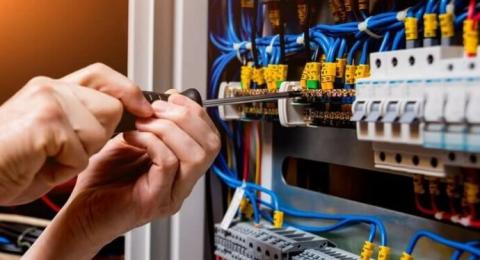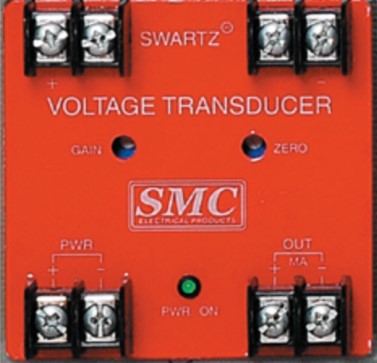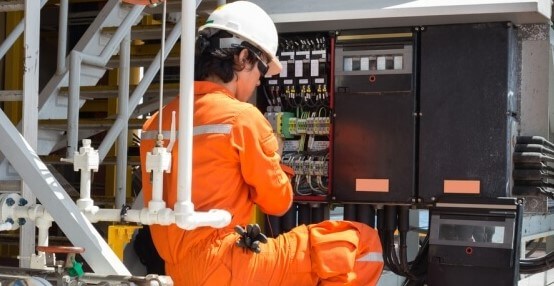
The modern world relies heavily on efficient transportation systems, and trains are a critical part of this infrastructure. As cities expand and populations grow, the demand for reliable, high-speed rail systems continues to increase. Central to the efficiency of these systems is the ability to maintain train power stability, which ensures safe and efficient travel for passengers and cargo. Voltage transducers play a pivotal role in monitoring and maintaining this power stability.
In this blog post, we will explore how voltage transducers work, why they are essential in train power systems, and how they contribute to overall train power stability.
Understanding Voltage Transducers in Train Systems
What is a Voltage Transducer?
A voltage transducer is an electrical device that measures voltage levels and converts them into a standard electrical signal that can be read and interpreted by monitoring equipment. In train systems, voltage transducers are used to measure the electrical input supplied to various train components. This real-time data is critical in monitoring and ensuring the correct functioning of power systems.
The Role of Voltage Transducers in Train Power Stability
In train systems, consistent and stable power delivery is essential. Power fluctuations or interruptions can lead to significant operational issues, including train delays, malfunctions, or even safety hazards. Voltage transducers provide continuous monitoring of the power supply, ensuring that the voltage levels remain within a safe and stable range.
When voltage irregularities are detected, the transducer can signal the system to take corrective actions, such as adjusting power flow or activating backup systems. By maintaining a steady voltage, transducers help ensure that train systems operate smoothly without interruptions, enhancing overall train power stability.
Importance of Train Power Stability
Why is Train Power Stability Essential?
Trains rely on a continuous supply of electricity to operate efficiently. Electrical power not only drives the train's propulsion system but also supports critical systems like lighting, heating, air conditioning, and communication equipment. Disruptions in power stability can lead to various issues, including:
- Train Delays: Unstable power can cause trains to lose speed, leading to delays.
- Component Damage: Voltage spikes or drops can damage sensitive electronic components in the train.
- Safety Concerns: In extreme cases, power instability can result in brake failures or other dangerous situations, jeopardizing passenger safety.
Voltage transducers are essential for monitoring and controlling the power supply to trains, helping to prevent these potential issues. By ensuring consistent voltage levels, they contribute significantly to the overall reliability and safety of train operations.

GET IN TOUCH
The ultimate solution for reliable power control! call us at 276-285-3841
The Impact of Voltage Fluctuations on Train Performance
In rail systems, voltage fluctuations can cause various operational challenges. Trains rely on a smooth and uninterrupted power flow to maintain their speed, braking, and overall efficiency. Even minor fluctuations can cause performance degradation.
- Overvoltage Issues: Excessive voltage can lead to overheating of electrical systems, damaging components and causing costly repairs.
- Undervoltage Issues: Low voltage can result in the train losing power, slowing down unexpectedly, or failing to accelerate properly.
By using voltage transducers, train operators can detect and address voltage fluctuations before they affect performance, ensuring a more stable and predictable operation.
How Voltage Transducers Maintain Train Power Stability
Real-Time Monitoring and Feedback
Voltage transducers continuously monitor the power supply to the train. This data is essential for real-time decision-making. By detecting voltage variations early, the system can automatically take corrective measures to ensure the train operates within safe parameters.
For example, if the voltage exceeds or falls below predefined levels, the transducer sends a signal to the control system, prompting adjustments to the power distribution or switching to an alternative power source. This process helps maintain train power stability, preventing power-related disruptions and ensuring smooth operation.
Voltage Transducers in AC and DC Train Systems
Modern trains may operate on alternating current (AC) or direct current (DC) systems, each requiring specific voltage monitoring solutions. Voltage transducers can be designed to measure both AC and DC voltages, making them versatile components in train power systems.
- AC Train Systems: These systems are commonly used in high-speed rail networks. Voltage transducers in AC systems help manage the power supplied from overhead lines or third rails, ensuring the voltage remains stable despite fluctuations in the electrical grid.
- DC Train Systems: Many metro and light rail systems operate on DC power. In these systems, voltage transducers monitor the power supplied to the train's motor and auxiliary systems, ensuring smooth acceleration and deceleration.
In both cases, voltage transducers play a key role in ensuring consistent power delivery, which is critical for maintaining train power stability.
Ensuring Safe and Efficient Train Operations
Voltage transducers are crucial for maintaining the safety and efficiency of train operations. When voltage transducers detect anomalies in the power supply, they provide early warnings that allow operators to intervene before problems escalate. This can prevent accidents, reduce downtime, and extend the lifespan of the train's electrical components.
The ability to monitor voltage levels in real-time is particularly important in preventing damage caused by power surges or drops. By identifying and mitigating these issues early, voltage transducers help minimize the risk of costly repairs or replacements of electrical components.
Voltage Transducers and Power Supply Systems
Power Supply Variations in Train Networks
Train networks rely on various power supply systems, depending on the region and type of train. High-speed trains, commuter rail, and subways may use different power delivery methods, including overhead lines, third rails, or battery systems.
- Overhead Power Lines: Many long-distance and high-speed trains use overhead lines to receive power. Voltage transducers monitor the voltage from these lines, ensuring a stable supply to the train.
- Third Rails: Metro systems and some regional trains use third rail systems for power delivery. Voltage transducers in these systems ensure the voltage remains stable, preventing damage to the train's electrical systems.
- Battery Systems: Some modern trains, particularly those designed for short distances or energy-efficient operations, may rely on battery power. Voltage transducers monitor battery voltage to ensure consistent power output, helping to manage charging cycles and prevent battery damage.
Regardless of the power delivery method, voltage transducers ensure that the power supply remains stable, contributing to reliable train operations.
Integration with Train Control Systems
Voltage transducers are often integrated into train control systems, providing real-time feedback to central control units. This integration allows for automatic adjustments to the train's electrical systems based on the voltage transducer's readings.
For example, if a voltage transducer detects a voltage drop in the power supply, the control system can automatically reduce power consumption in non-essential systems, such as lighting or heating, to prioritize propulsion and braking systems. This helps maintain overall train power stability, even in challenging conditions.

GET IN TOUCH
The ultimate solution for reliable power control! call us at 276-285-3841
The Future of Train Power Stability with Voltage Transducers
As train systems continue to evolve, the demand for more efficient and reliable power management solutions will grow. Voltage transducers will play an even more significant role in ensuring train power stability, particularly as rail networks expand and more trains are introduced into service.
Advanced Voltage Transducer Technologies
Innovations in voltage transducer technology are paving the way for more accurate and reliable power monitoring in train systems. For example, digital transducers offer enhanced precision and faster response times compared to their analog counterparts. These advanced transducers can provide real-time data with greater accuracy, allowing for more effective power management and improved train power stability.
Additionally, new transducer designs are being developed to withstand harsh environmental conditions, such as extreme temperatures and vibrations. This durability is essential for ensuring reliable performance in challenging rail environments.
Sustainable Train Systems and Power Management
Sustainability is becoming an increasingly important consideration in the rail industry. Voltage transducers are helping to improve the energy efficiency of trains by optimizing power usage. By monitoring voltage levels and ensuring efficient power distribution, transducers help reduce energy consumption, contributing to greener and more sustainable train operations.
As more rail systems adopt renewable energy sources, such as solar or wind power, voltage transducers will be critical in ensuring the seamless integration of these energy sources into train power systems. They will help manage the variability of renewable energy, ensuring consistent and stable power delivery to trains.
Conclusion
Voltage transducers are indispensable components in modern train systems, playing a crucial role in ensuring train power stability. By continuously monitoring voltage levels and providing real-time feedback, they help maintain smooth and efficient train operations. Whether in AC or DC systems, voltage transducers prevent voltage fluctuations from causing disruptions, ensuring safe and reliable travel for passengers and goods.
As the rail industry continues to evolve, voltage transducers will remain essential for improving the efficiency, reliability, and sustainability of train systems. Their role in maintaining power stability will become even more critical as train networks expand and new technologies are introduced.
Ensure Power Stability with Swartz Engineering Solutions
At Swartz Engineering, we specialize in providing cutting-edge voltage transducers designed to enhance train power stability. Our reliable and efficient solutions ensure smooth operations, prevent costly disruptions and prioritize safety in rail systems. If you're looking to improve your train's power management and overall performance, contact us today to learn more about our voltage transducer solutions. Get in touch with our experts now and take the first step towards stable, efficient train power systems! Contact Us Today!
Our Expert Services
Swartz Engineering provides top-quality products to meet our customers' needs. We also make sure our products work reliably and safely. Our products include:
- Type 76 DC Relay
- Type 82 DC Relay
- Swartz Engineering’s Type 64 Ground Relay
- Type 32 Reverse Current Relay
- Type 150 DC
- CSM Shield Monitor
- Metal Oxide Surge Arrestors
- Transducers
- MVIS SL Slim-line Contactor
- Fully-tested Power Control Rooms
- Swartz Engineering’s Portable Substations
